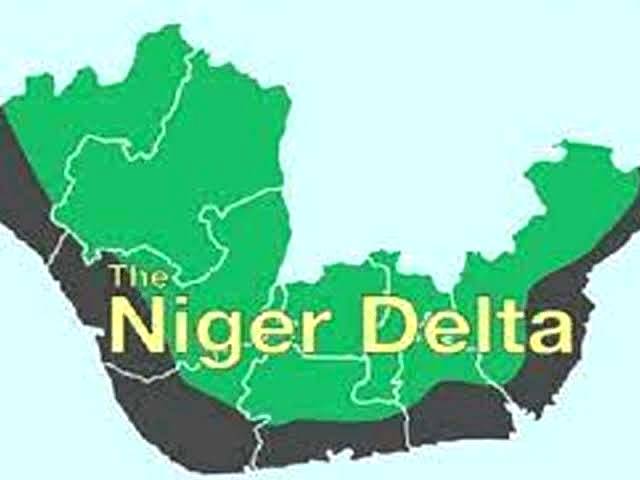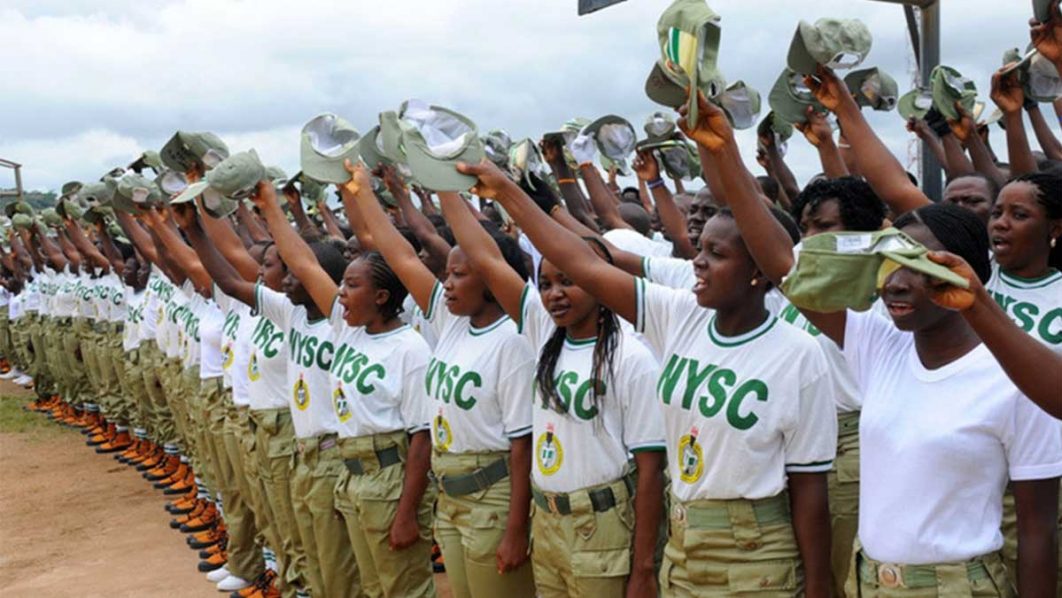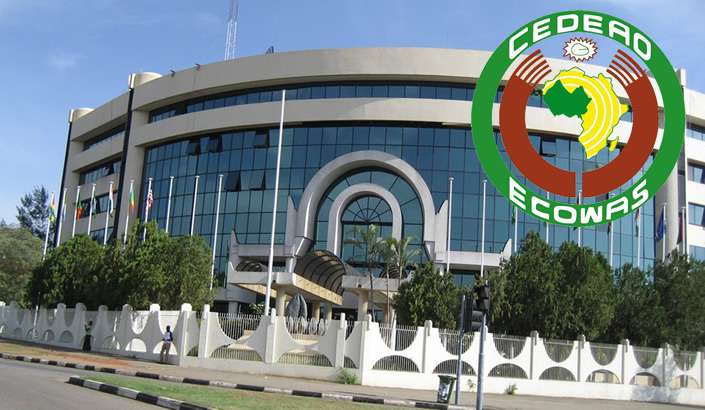News
S-Court Bench Reduces To 11, As Appeal Court Gets 9 New Justices Wednesday

As the Chief Justice of Nigeria, CJN, Justice Olukayode Ariwoola, gets set to constitute the panel that will hear and finally determine all the petitions that are trailing the 2023 presidential election, the Supreme Court, will by Thursday, have its bench reduced to 11 justices.
This further depletion of the apex court bench, to an all time low, follows the retirement of Justice Amina Augie (Kebbi State).
Though Justice Augie clocked the 70 years mandatory retirement age on September 3, however, the court, in a statement it made available to newsmen on Sunday, disclosed that she would formally bow out of its bench on Thursday.
“The valedictory court session in her honour was delayed because of the annual vacation of the Court which just ended on Friday, 15th September, 2023,” the court added in the statement that was signed by its Director of Press & Information, Dr. Akande Festus.”
READ ALSO: Forgive My Husband, Obansajo’s Wife Begs Obas, Yoruba In Emotional Statement
Remarkably, the number of justices of the court unprecedentedly rose to 20 in November 2020, after President Muhammadu Buhari okayed the elevation of eight justices at a go.
Their appointment had sparked hope that the apex court would for the first time in history, attain the full complement of 22 justices as prescribed by Section 230 of the 1999 Constitution, as amended.
However, with the death of Justice Sylvester Ngwuta on March 7, 2021, about 23 days before to his retirement, and the retirement of Justice Rhodes-Vivour 14 days later, only 18 Justice were left on the apex court bench.
Before their replacements could be appointed, Justice Samuel Oseji died on September 2021, aged 67, less than a year after his appointment to the Supreme Court.
READ ALSO: UK Hikes Student’s Visa To N476,667, Raises Fee For Visitors
Likewise, while Justice Mary Odili, who became the second most senior jurist of the court, retired on May 12, 2022, Justice Ejembi Eko also bowed out of active judicial service on May 23, 2022.
In a shocking move, the then CJN, Justice Ibrahim Tanko Muhammad, voluntarily resigned his position in June, 2022, even as Justice Abdul Aboki retired on August 5, last year, thereby reducing the number of justices of the Supreme Court to 13.
Justice Chima Centus Nweze, who was the only Justice of the court from the South East region, died in Abuja, after a brief illness on July 29 this year.
As stakeholders demand urgent elevation of new justices in view of the mounting workload on the apex court, research by Vanguard revealed that whereas Justice Musa Dattijo Muhammad will retire by October 27, the CJN, Justice Ariwoola, will equally exit the bench on December 31.
Other remaining justices on the apex court bench, are; Kudirat Motomori Kekere-Ekun (to retire 2026), John Inyang Okoro (2029), Uwani Abba Aji (2026), Garba Lawal (2028) and Helen Morenikeji Ogunwumiju (2027).
READ ALSO: IG Orders Lagos CP To Probe Mohbad’s Death
As well as; Ibrahim Saulawa (2026), Adamu Jauro (2029), Tijjani Abubakar (2030) and Emmanuel Agim (2030).
By the combined provisions of paragraphs 13 (a) & 21 (a) of the 3rd Schedule Part 1, of the Constitution, the National Judicial Council, NJC, upon the advice of the Federal Judicial Service Commission, FJSC, has the statutory power to nominate and recommend the appointment of justices of the Supreme Court to President Bola Tinubu.
Section 234 of the Constitution mandates the Supreme Court to hear cases in a panel of 5 or 7 justices.
Meanwhile, the court, in the statement it issued on Sunday, said the CJN would on Wednesday, swear in nine newly appointed justices of the Appeal Court.
“The Justices are: Hannatu Azumi Laja-Balogun from Kaduna State, who was appointed a High Court Judge on 24th May, 1999; Binta Fatima Zubairu from Kaduna State, appointed a High Court Judge on 31st October, 2001; and Peter Chudi Obiora from Anambra State, who was sworn-in as High Court Judge on 17th January, 2005, respectively.
“Others are Justices Okon Efreti Abang from Akwa Ibom State, who was appointed a High Court Judge on 22nd June, 2009; Asma’u Musa Mainoma from Federal Capital Territory, appointed High Court Judge on 1st February, 2013; Lateef Adebayo Ganiyu from Oyo State, who became High Court Judge on 26th June, 2014; and Jane Esienanwan Iyang from Cross River State, who was sworn-in as High Court Judge on 12th February, 2015.
“The rest are Justices Hadiza Rabiu Shagari from Sokoto State, who got elevation to the High Court Bench on 12th February, 2015; and Paul Ahmed Bassi from Borno State, appointed to the High Court on 14th July, 2017, respectively,” the statement read.
VANGUARD
News
Reps Raise Alarm Over N1.65trn In PIA Funds Denied To N’Delta

The House of Representatives Committee on South South Development Commission (SSDC) has raised alarm over Nigeria’s failure to implement two key Petroleum Industry Act (PIA) funds, saying it has denied the Niger Delta an estimated N1.65 trillion earmarked for environmental cleanup and decommissioning of obsolete oil facilities since 2021.
Chairman of the committee, Hon. Julius Gbabojör Pondi, disclosed this on Tuesday during an interactive session at the National Assembly, which examined the continued dormancy of the Abandonment and Decommissioning Fund and the Environmental Remediation Fund, both mandated under the PIA.
The session brought together representatives from the Nigerian Upstream Petroleum Regulatory Commission (NUPRC), the Nigerian Midstream and Downstream Petroleum Regulatory Authority (NMDPRA), the National Oil Spill Detection and Response Agency (NOSDRA), SSDC, and the supervising Ministries of Petroleum and Environment, with the aim of establishing a coordinated framework to activate the funds.
According to Pondi, the data presented to the committee indicate that the Abandonment and Decommissioning Fund should have accrued between N850 billion and N1.1 trillion, while the Environmental Remediation Fund should have amassed between N420 billion and N550 billion if properly operationalised since 2021.
READ ALSO:Tinubu Addressing Development, Economic Growth, Peace, Security In N’Delta – PAP Boss
He described the delay as a serious breach of environmental justice and a threat to sustainable development in the Niger Delta, noting that the funds were intended to hold oil and gas companies fully accountable for decommissioning outdated infrastructure and rehabilitating degraded ecosystems.
“These funds were created to prevent the shifting of environmental liabilities to local communities. Yet, four years after the enactment of the PIA, they remain dormant, leaving farmlands polluted, rivers contaminated, fisheries depleted, and communities exposed to health hazards,” Pondi said.
The lawmaker criticised the lack of transparency and operational progress from the Nigerian Upstream Petroleum Regulatory Commission (NUPRC) and the Nigerian Midstream and Downstream Petroleum Regulatory Authority (NMDPRA), calling it a demonstration of institutional incapacity.
He warned that continued failures could prompt the creation of a new dedicated agency to ensure proper administration of the funds.
Pondi reaffirmed the committee’s commitment to oversight and insisted that legislative instruments must deliver tangible benefits to host communities.
READ ALSO:2027: N’Delta Won’t Allow Jonathan’s 2015 Fate To Befall On Tinubu – Akpabio
“The National Assembly cannot continue to look away while environmental liabilities multiply and communities suffer. The era of shifting cleanup responsibilities to impoverished communities must end,” he said.
In other news, drama erupted on the floor of the House of Representatives on Tuesday as the Chairman, House Committee on Petroleum Resources (Upstream), Alhassan Ado-Doguwa, launched a stinging critique of President Bola Tinubu’s administration over the worsening insecurity across the country.
He declared that Parliament should be shut down if the government fails to restore order and peace in volatile areas.
Doguwa, who spoke during a special plenary session convened to review Nigeria’s national security situation, said the nation was engaged in a full-scale war against humanity, insisting that the government’s best efforts were no longer sufficient.
READ ALSO:PAP: N’Delta Groups Knock Boyloaf Secretary, Gbaboyor, Over Attack On Otuaro, Tompolo
While acknowledging ongoing operations by security agencies, the former Majority Leader said President Tinubu’s government had fallen short of its constitutional responsibility to protect lives and property, especially in the North, where he described the situation as devastating, unspeakable and tragically unbearable.
He warned that the deepening security crisis marked by banditry, kidnappings, terrorism and attacks on communities risked derailing political stability ahead of the 2027 general elections, arguing that there was now a “calculated attempt to demoralise the Nigerian state.”
“Mr. Speaker, I am therefore prepared to say that no matter what the government does—my government, led by Bola Ahmed Tinubu, the APC government, my party and despite all the submissions and efforts of the security agencies through their respective chairmen, I want to say that yes, the government is doing its best, the security agencies are doing their best, but with every sense of responsibility and without any fear of equivocation, their best is not good enough.
READ ALSO:One Confirmed Dead As ‘Egungun’ Festival Turns Bloody
“It is not good enough because the security situation in Nigeria today is horrific. Mr. Speaker, our security situation is tragic. The situation, especially in the North where I come from, is devastating.
“Our security situation in Nigeria today is unspeakable. It is unspeakable because our people are left ravaged in tension, fear, and despair, all because we are lacking in institutional and collective responsibility as a government. Mr. Speaker, the fact remains the same.
“I like that everyone of you here says that the responsibility of every democratic or elected government or military governments is fundamentally the security of the lives and property of its own people.
“Mr. Speaker, what we have today is like a failed security system. In my opinion, it is like, to quote the popular Bob Marley in his song from the 1980s, when he was saying: war in the North, war in the West, war in the East, and war down South.”
(GUARDIAN)
News
FG Enlists NYSC Members In Campaign To Fight Small Arms, Light Weapons Proliferation In Northeast

The Federal Government has charged the National Youth Service Corps (NYSC) members across the Northeast sub-region to play an active role in curbing the spread of Small Arms and Light Weapons, SALW, across the region.
Northeast Zonal Director of the National Centre for the Control of Small Arms and Light Weapons, (NCCSALW) under the Office of the National Security Adviser to President Bola Ahmed Tinubu, Maj.-Gen. Abubakar Adamu (Rtd), gave the charge yesterday at the NYSC Orientation Camps in Potiskum, Yobe state and Maiduguri, Borno state.
Maj:-Gen Adamu (Rtd), represented by Mr. Aminu Saleh Mohammed, Assistant Director of Strategic Communication and Information of the Centre, said the active involvement of youth, especially corps members, would significantly help to tackle insecurity.
He explained that the NCCSALW, established in 2021 under the Office of the National Security Adviser, serves as the institutional framework for regulating and controlling Small Arms and Light Weapons in Nigeria.
READ ALSO:NYSC Reiterates Provision Of Community Development Services
While sensitizing the corps members on camp in Yobe state on the dangers of the proliferation of arms and weapons on the society, the Zonal Director said such weapons fuels banditry, kidnapping, cultism, political thuggery, insurgency and other crimes.
“When you get to your places of primary assignment, be good ambassadors of your parents, NYSC, your state and yourself by reporting anyone in possession or involved in the fabrication of small arms and light weapons,” he urged.
According to him, Small Arms and Light Weapons hinders development, increases black marketers of arms and ammunition, causes undue exposure of young people to armed-violence, heightens transborder insecurity, create fears in the minds of the people and many other vices in the society.
He called on all parents and guardians to take full responsibility of good child upbringing in all ramification, educate children on tolerance and peaceful co-existence and warn against violence.
He advised them to also observe and closely monitor behavioral changes for prompt correction.
READ ALSO:NYSC Pays Arrears After Two-month Break
Similarly, at the NYSC Orientation camp in Maiduguri, the Centre’s Northeast boss called on scholars and clergymen to teach and sensitize their congregations on the dangers of proliferation of SALW, tolerance and peaceful co-existence.
“They should caution their congregation against the use of illicit SALW, facilitate reconciliation among extremists and victims for successful reintegration and surrendering,” he said.
He also called on the Northeast Coordinators of NYSC to partner with the Centre to establish a Small Arms and Light Weapons Community Development Service (CDS) group in the states, similar to one already operational in Borno.
In their separate reactions, the NYSC Coordinators in Yobe and Borno states, Mr. Edison Ohuoha and Mallam Nasir Bello, welcomed the proposal, assuring that efforts would be made to set up the CDS group to support the campaign.
They promised to work closely with the Centre in order to fight and eradicate the proliferation of illicit small arms and light weapons within the region by carrying out sensitization in strategic locations.
News
Coup: ECOWAS Suspends Guinea-Bissau

The Economic Community of West African States, ECOWAS, has suspended Guinea-Bissau from all its decision-making bodies following the military takeover in the country.
The suspension was announced after an emergency virtual meeting of the ECOWAS Mediation and Security Council, MSC, late Thursday.
The session was chaired by Sierra Leone’s President Julius Maada Bio, who also leads the Authority of ECOWAS Heads of State and Government.
In its communiqué, the MSC said the decision was taken in line with the ECOWAS Protocol on Democracy and Good Governance (2001), stressing that Guinea-Bissau would remain suspended until full and effective constitutional order is restored.
READ ALSO:Court Dismisses SPDC’s Objections To Compensation Over Hydrocarbon Pollution In A’Ibom
The coup unfolded on Wednesday, barely three days after the country’s contentious presidential and legislative elections.
The mutinous officers halted the electoral process, shut the nation’s borders and stopped the release of official results.
ECOWAS strongly condemned the takeover, describing the detention of several individuals, including incumbent President Umaro Sissoco Embaló, widely projected to win the election, as unacceptable.
“The MSC condemns in the strongest terms the coup d’état perpetrated on 26 November 2025 and calls for the immediate restoration of constitutional order,” the statement read.
READ ALSO:Guinea-Bissau Coup: FG Gives Update On Ex-President Jonathan
It also rejected any arrangement that would legitimise the disruption of the democratic process or undermine the will of the people of Guinea-Bissau.
The regional bloc demanded the prompt release of all detained political actors, including President Embaló, electoral officials, and other arrested figures.
ECOWAS also insisted that the electoral commission be allowed to announce the results of Sunday’s vote without interference.
Despite regional pressure, the coup leaders have named the army’s chief of staff, General Horta N’Tam, as transitional head of state for a one-year period.

 News5 days ago
News5 days agoJUST IN: Tinubu Orders Withdrawal Of Police Guards From VIPs

 Metro3 days ago
Metro3 days agoJUST IN: Again, Terrorists Storm Kwara Community, Kidnap Pregnant Woman, 10 Children, Others

 News4 days ago
News4 days agoBREAKING: South-West Governors Hold Security Meeting In Ibadan

 News4 days ago
News4 days agoArmy Releases List Of Shortlisted Candidates For SSC Course

 News4 days ago
News4 days agoN6trn: Court Orders Tinubu To Publish NDDC Audit Report, Name Indicted Officials

 News4 days ago
News4 days agoJimmy Cliff, Jamaican Reggae Legend, Cultural Icon, Is Dead

 Politics4 days ago
Politics4 days agoJUST IN: Atiku Officially Joins ADC, Registers With Party In Adamawa

 News2 days ago
News2 days agoHow To Access Your Pension Before Retirement

 News2 days ago
News2 days agoBREAKING: Tinubu Declares Nationwide Security Emergency, Orders Armed Forces To Recruit More Personnel

 Metro4 days ago
Metro4 days agoBandits Claim Kebbi, Niger Abductions, Vow More Attacks On Soldiers, Politicians [VIDEO]






























